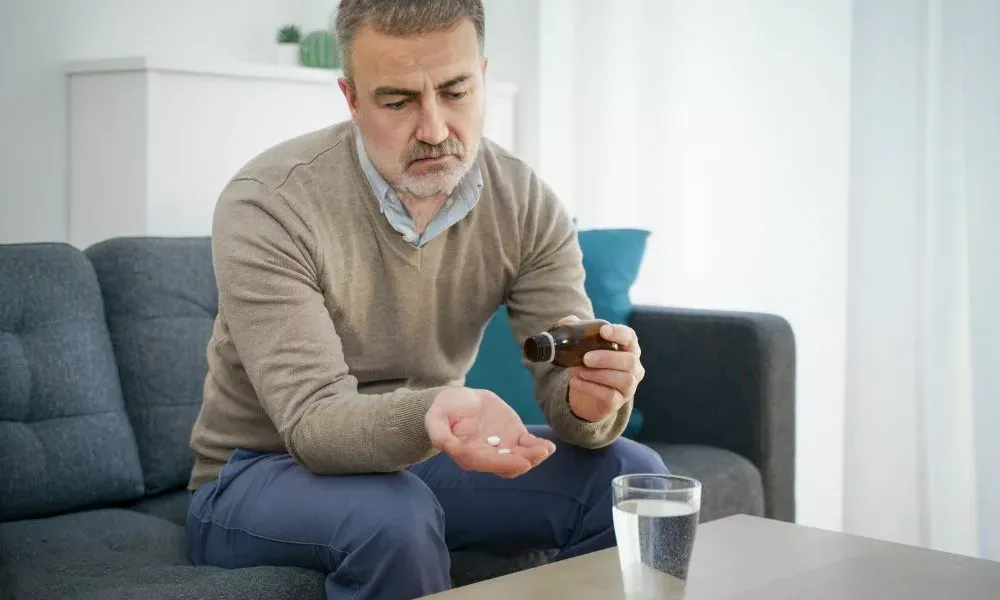What Are Some Examples of Toxic Torts?


As our society’s scientific understanding of chemicals develops, we sometimes learn substances previously thought to be harmless are toxic to some degree. Unfortunately, this means many companies are now facing lawsuits over chemical exposure.
Toxic tort lawsuits, especially mass toxic tort suits, have bankrupted several companies in the past few decades, forcing them to close their doors forever. In fact, toxic tort lawsuits are on the rise, and predictions are plaintiffs will file many more cases in upcoming years.
Whether your company is facing the possibility of a toxic tort suit or is preparing strategies for potential future claims, you need skilled toxic tort lawyers on your side. To learn how Orndorff Mowen PLLC can assist, contact our law firm at 866-481-2765 to schedule a consultation.
What is a Toxic Tort Case?
A toxic tort is a type of personal injury claim brought forward by a plaintiff claiming they suffered adverse side effects due to exposure to toxic chemicals or other hazardous materials, including but not limited to asbestos, tobacco, mold, and fossil fuels. Toxic substance exposure may occur through air, soil, groundwater, drinking water, or physical contact.
Because of the length of time it takes for a person to show symptoms of a health problem, it can take several months or even years to bring a claim. In some cases, a group of people may collectively come together and file a class-action lawsuit filed by a personal injury lawyer alleging claimants suffer illness or injury from toxic exposure.
Common Examples of Toxic Torts
The following examples are types of toxic torts that previously, currently, and in the future will be heard in civil courts.
Asbestos
Asbestos is a naturally occurring mineral originally thought to be safe. Due to its high level of fire resistance, it was used for centuries. During the Industrial Revolution of the late 1800s, asbestos use was common, and companies did not know how harmful exposure could be to workers and others. Industries using this substance included construction, shipping and maritime, and manufacturing.
In the 20th century, scientists discovered asbestos exposure could lead to cancer, mesothelioma, asbestosis, and other adverse health effects. This led to severe restrictions on the use of asbestos in the U.S., along with many toxic tort lawsuits.
Unfortunately, asbestos lawsuits, among other things, have led to a practice of over-naming defendants. Businesses that never even used asbestos containing materials can find themselves in litigation, losing thousands if not millions defending themselves and in some instances going bankrupt. On April 15, 2021, West Virginia Governor Jim Justice signed House Bill 2495 to help significantly limit this practice.
Toxic Mold
Mold is a fungus found everywhere, but certain types can cause significant illness or property damage. Toxic mold produces mycotoxins, which are known to harm people. Individuals might bring lawsuits against companies claiming toxic mold exposure.
Usually, its presence develops from water intrusion. Mold cases can be complicated because it is often difficult to identify the at-fault party (which can be an architect, construction company, developer, property seller, landlord, etc.). As a result, claimants name innocent businesses in lawsuits.
Pesticides
Pesticides are widely used in our society in both commercial and residential settings, commonly found in places like office settings and backyards. Certain chemicals found in pesticides may cause cancer and other illnesses. In some cases, plaintiffs allege a company caused their sickness, but the reality is exposure may be from someplace else. An experienced toxic tort attorney can examine the situation, and, if necessary, take steps to build a defense.
Ethylene Oxide
Ethylene oxide is gaining plenty of attention and scrutiny. It is probable companies, even if they emit the smallest amount of this substance, may end up as defendants in a toxic tort case. Speaking with a knowledgeable toxic torts attorney to protect your business against such lawsuits is a good idea.
How to Identify Potential Toxic Tort Risks
To protect your company from lawsuits, it is a wise strategy to be proactive and always seek to identify potential toxic tort risks. Steps you can take include:
- Being aware of the toxicity and health risks of chemicals and materials your business uses
- Identifying possible routes of exposure for workers and consumers
- Assessing potential health risks of substances in use at your company
- Considering potential widespread exposure – could your product ever contaminate a community’s water or air?
Orndorff Mowen PLLC has extensive experience in this area of law.
Tips For Reducing Your Business’s Risk of Toxic Tort Lawsuits

If your company identifies any potential substances that may increase the risk of a toxic tort lawsuit, you should take the following steps.
- Create a risk management plan
- Provide adequate employee training
- Conduct regular safety inspections
- Stay up-to-date on EPA and other U.S. regulations
- Maintain accurate records
If you need assistance drafting a risk management plan, contact the Orndorff Mowen law firm.
How to Defend Your Company Against a Toxic Tort Claim
If your business is named a defendant in a toxic tort claim, you will need to develop a defense strategy, build a strong case, and prepare to challenge claims.
Common Defenses Against Toxic Tort Claims

Your attorney can establish the right defense if your company faces a personal injury lawsuit for toxic substance exposure. Common defenses include:
- Claimant did not suffer exposure to the substance.
- Your company did not cause exposure.
- Plaintiff injuries did not materialize through exposure.
- Plaintiff knew or should have known about exposure risks.
Your attorney will also examine the case and see if it falls within the correct statute of limitations for the type of lawsuit filed.
Build a Strong Scientific Case
Defendants in toxic tort lawsuits should prepare to mount a strong defense rooted in scientific proof. Doing so will add credibility to their defense, show the plaintiff may have lodged a case against the wrong company, or that they did not prove all the necessary elements a tort case requires.
Challenge Plaintiff’s Expert Witnesses
Plaintiffs will heavily rely upon expert testimony in tort cases. A business can challenge witnesses and provide opposing evidence to support their own claims. Courts use various methodologies in examining the admissibility of expert testimony, such as the Daubert Standard, to determine whether an expert witness meets the standard of “scientific knowledge.”
Your toxic tort attorney will discuss your options with you.
Protecting Your Company’s Well-Being
If your company finds itself named in a toxic tort lawsuit, you will want strong representation. Orndorff Mowen is prepared to help. Our civil defense law firm is well-versed in tort law, is highly responsive, and has a history of success in negotiations and in court fighting back against cases involving allegations of toxic chemical or dangerous substance exposure, and occupational exposure.
To preserve your business’ legacy, our attorneys are equipped to work with your business to develop risk management and mitigation strategies with the intention of avoiding tort action. In the event a plaintiff files a claim against your company, we will create a strong defensive strategy. We highly value collaborative attorney-client relationships and will work hard on your behalf to defend your business against mass torts, class action lawsuits, and toxic tort litigation.
To learn more, contact Orndorff Mowen at 866-481-2765 or fill out our online contact form.
"*" indicates required fields

